Are you one of nearly half U.S. holiday shoppers who started gift-buying before October 31? Let’s take the mask off shopping scams for a safer and happier 2024 season.
At HomeTown Bank, we know how hard you work for your money. We also know how creative the crooks have become in targeting consumers in person and online, making cybersecurity in online banking especially critical.
Thankfully, there are simple things we can all do to help protect ourselves and our families during this wonderful season of giving, whenever you start it. Here’s how to identify and avoid holiday shopping scams and what to do if caught by one.
Let’s Face the Facts
Last year, Americans lost 10 billion dollars to fraud. These threats include porch pirates, fake phone calls, and online offers that seem too good to be true.
According to FTC data, credit fraud is the type of fraud we are most likely to fall prey to. In an up-and-down economy, any fraud is painful. To help us all think broadly about it, here are some common ways you or your family might be targeted this year, with simple ideas on protecting yourself.
Shopping Online
- Watch Your Online Purchases. It’s easy to fall in love with an item you find online, but does the site have a secure checkout? One quick way to check is by looking for ‘HTTPS’ in the website address. Doing so ensures your connection is encrypted and secure. If you’re unfamiliar with a site, check reviews or verify that secure checkout is available to help keep your financial information safe.
- Deals Too Good to Be True. We say that for a reason, right? Spending a few extra minutes to read reviews from other shoppers can save you trouble later. A quick Google search can help you find these reviews easily.
- Gift Card Scams. One trick fraudsters like to play in gift card scams is a phishing scam to steal your gift card number and PIN so they can use the card. Look over the website to ensure it is real. If in doubt, go to the gift card brand directly for more details, or buy a card through another trusted vendor.
- False Social Media Ads. Recently, there has been a rise in dummy rental property ads on Facebook. However, false ads can appear on any area of the social platforms you frequent. The same rules apply when checking the offer on their website. If the URLs seem strange, are from a foreign country, or do not relate to the product, stay away. Also, avoid any that ask you to call paid lines.
- Online Market Offers. One can also say the same for swap sites or online markets. There is less chance to find Google reviews, but sites like Craig’s List or Facebook Market allow you to rate the sellers. Check those ratings out. Being a cyber detective regarding your money is okay. Bring a friend for support if you plan to pick up or deliver an item. Also, don’t share too many details to keep yourself safe.
Email Scams
- Phishing Emails. Most junk filters catch spam, but some emails still slip through. Fraudulent emails often have poor design or suspicious email addresses—mark and report them as junk. If unsure, contact the vendor using known contact info, not the one in the email, to verify if it’s legitimate.
- Do Not Click on Links. Ever. If you don’t know the sender? Don’t trust them. They bought your email somewhere, and you don’t owe them anything. Delete it, send it to junk, or block it. Period. This is true in emails or texts.
- Charitable Giving Scams. It’s hard to mistrust organizations appearing to do good during the season of giving; however, according to FBI data, Americans lost $4.4 million to fraudulent charities—not including money lost to fake online fundraisers. To research before giving, visit the Minnesota Attorney General’s Office for more details on reputable charities.
Tips for Protecting Your Spending
Let’s look at additional ways to protect your money and credit to avoid scams.
- Practice Secure Debit Usage and Habits. Although debit cards are convenient, many people prefer to pay with cash, which helps them avoid interest payments on credit. However, since a fraudster can access your checking or savings accounts, you want to protect them at all costs.
- Secure Passwords. Since hackers use sophisticated programs to crack possible passwords, please don’t make it easy on them. Follow the guidelines for password creation, using letters, numbers, symbols, or capital letters in odd places like daiSy! Zzz2. It doesn’t have to make sense to anyone. Or use a password manager.
- Research Before You Buy. If you find something that looks good but are still unsure, seek independent reviews outside the site. You don’t know if the reviews on the site are genuine or manufactured. Still not sure? Ask a family member or friend for advice. Do your due diligence.
- Protect Your Family. Make safe shopping a part of your holiday planning with family. Share the tips you find with your elderly parents, your kids, and your friends. Share the links and work together to adopt safe practices.
- Report the Wrongdoers. Don’t be shy about reporting. Here are a few starters to use if you find yourself caught in someone’s sticky trap:
-
- Contact Your Bank and Get Advice Immediately. They can help you protect your assets and nip off any unlawful access.
-
- Report Online Through Email Providers, Websites, and Social Media. Spread the word so their criminal opportunities diminish.
-
- Contact the Authorities. Theft is theft. You can seek legal advice. Doing so can help inform the police and the community about wrongdoers in your area.
-
- Contact or Visit Protection Agencies. The federal government provides resources to protect you from scams; learn more at the Bureau of Consumer Protection.
Let’s Pause a Moment and Remember Why We Give
The joy of gifting comes from thoughtfulness and care, brightening the day of those we love. While criminals may be creative, practicing safe habits helps protect us and mitigates scammers, making it harder for them to succeed.
At HomeTown Bank, we’re committed to keeping our customers’ assets safe and their financial transactions secure. Following these safety tips can help ensure a happy and stress-free holiday. We’re here if you have any questions about holiday spending or need assistance. Call or visit your local HomeTown Bank.







